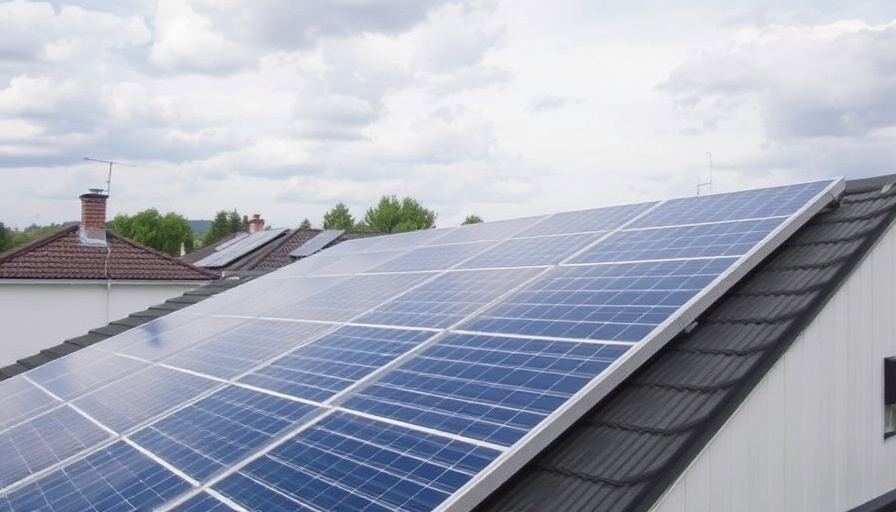
The Decline of Solar: An Industry in Crisis
In recent months, the residential solar industry has faced severe challenges due to significant tax credit cuts and unexpected policy shifts. Homeowners who once sought to harness the power of solar energy as a means of reducing energy bills and enhancing property value now confront a critical dilemma. With fewer financial incentives and increasing installation costs, the once-booming solar market is at risk of collapsing.
Implications for Homeowners Seeking Energy Independence
For homeowners aged 30-65, particularly those keen to lower energy costs, the situation is dire. The loss of tax credits fundamentally alters the economics of solar panel installation. The federal tax incentives, which previously allowed consumers to reclaim a portion of their solar investment, have been slashed. This development not only increases the upfront costs for consumers but also jeopardizes the long-term savings touted by solar advocates. As a result, many homeowners are reconsidering or abandoning their plans to invest in solar energy.
Market Reactions: A Changing Landscape
The reduction in tax credits has caused ripple effects throughout the solar industry, affecting manufacturers, installers, and even financing firms that once thrived on solar loans. A multitude of local solar companies are reporting a downturn in leads and sales, forcing some to lay off workers or shut down entirely.
This changing landscape is reminiscent of 2016 when similar uncertainties around solar policies led to industry disruption; however, the current situation feels even more acute with rapidly rising energy costs from traditional utilities. The stakes for homeowners are high, as initial investments in solar technology may no longer yield favorable returns.
Alternative Energy Solutions: A Silver Lining?
Despite the challenges, there remains hope for innovation and adaptation. Many in the industry are pivoting towards alternative financing options and community solar programs to mitigate the impact of tax credit losses. These approaches may provide more accessible routes to solar energy for consumers unwilling or unable to shoulder the mounting costs alone.
Additionally, some experts predict a growth in off-grid solar solutions that can reduce dependence on grid power altogether, providing consumers with energy independence and resilience against future utility price spikes.
Counterarguments: Thinking Beyond Tax Credits
While tax credit cuts have mobilized much of the conversation around the current crisis, it’s essential to recognize the broader context of the renewable energy landscape. Many advocates argue that the long-term benefits of solar energy—reduced reliance on fossil fuels and lower carbon footprints—remain intact regardless of immediate financial incentives.
In fact, by elevating community awareness and increasing public interest in sustainability, these evolving norms may pave the way for more comprehensive environmental policies in future legislation. The question isn’t if solar will continue to play a role in the future energy mix, but rather how swiftly it can adapt to changing financial landscapes.
Understanding the Future of Solar Energy
Looking ahead, the residential solar sector may find a path to recovery by embracing technological advancements in energy storage and grid management. Emerging innovations—such as more efficient solar cells and battery solutions—promise to lower costs and enhance user experience, potentially offsetting immediate fiscal setbacks.
As an environmentally-conscious audience, it’s crucial to understand that while government incentives can incentivize growth, the true value of solar energy lies in its capacity to provide sustainable solutions. The resilience of this industry will depend heavily on consumer engagement and advocacy for policies that promote renewable energy development and investment.
Conclusion: Take Action Now to Explore Your Solar Options
In light of these developments, homeowners must seek to educate themselves about the evolving market landscape. Investigating alternative financing options, exploring community solar programs, and advocating for policies that support renewable energy are essential steps to ensure the continuation of solar installations. The future of residential solar may be uncertain, but proactive engagement will empower consumers and drive recovery in the industry.
 Add Row
Add Row  Add
Add 



Write A Comment